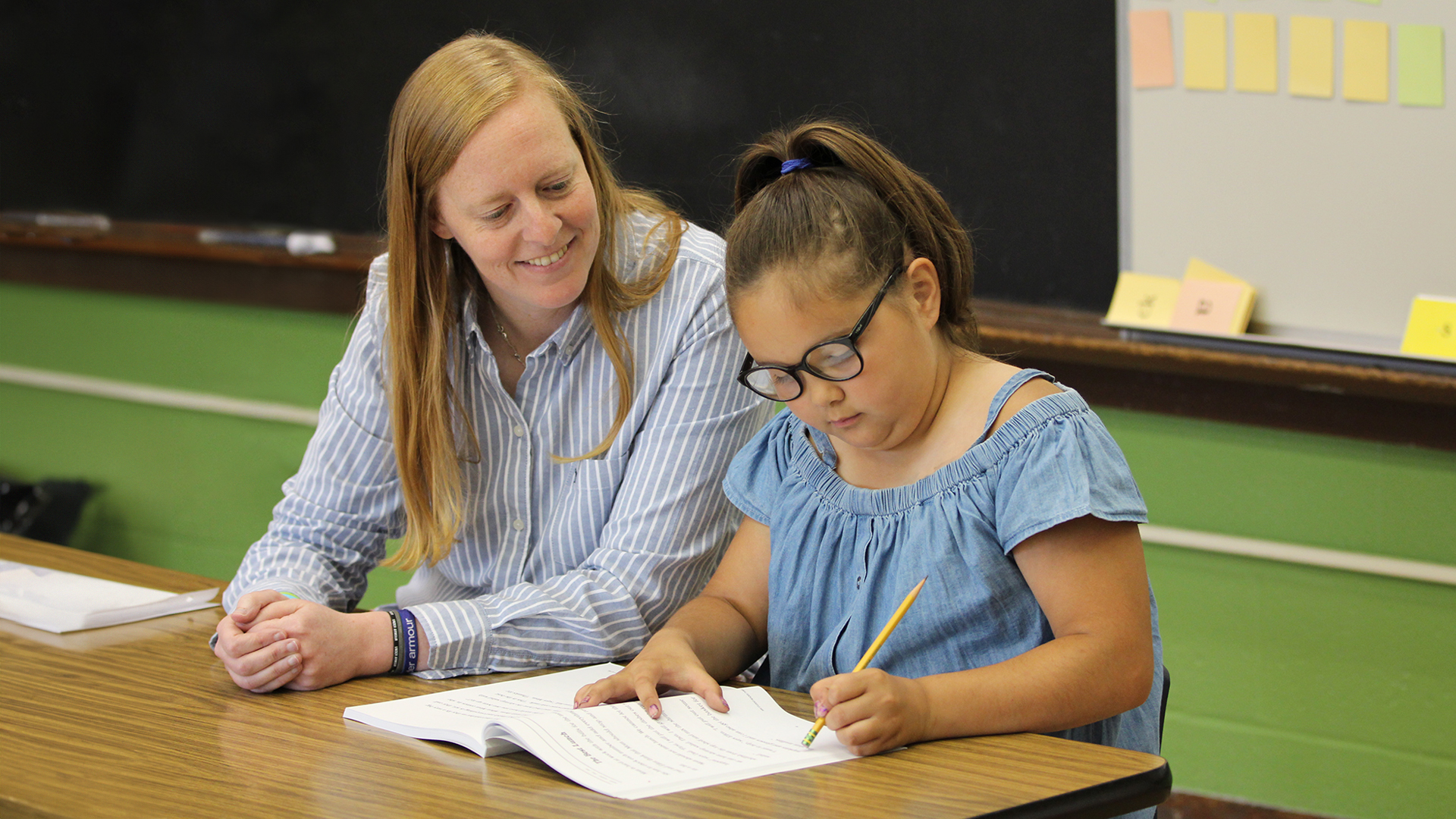With more than three decades of experience, we know what it takes to successfully teach individuals with dyslexia to read and spell.
Wilson® programs are aligned to Orton-Gillingham (O-G) principles of instruction and a wide body of research in reading instruction and acquisition. Our approach helps to ensure the success of educators using Wilson programs to teach individuals with diverse learning abilities to read. The Fundations® program for K–3 students is designed to prevent reading failure and identifies those students who would benefit from intervention support early. The Wilson Reading System® (WRS) is an O-G based program for students in grades 2 and higher who have been unable to learn with other teaching strategies and require intensive Structured Literacy (SL) instruction due to a language-based learning disability like dyslexia.
Learn how the WRS is an effective solution for students with dyslexia by reading about the WRS program.

Dyslexia is a brain-based learning disability that makes learning to read and write unexpectedly difficult for millions of individuals around the world. It’s a highly variable condition that affects individuals on a continuum of severity.
Research and instructional experience have clearly proven that individuals with mild, moderate, and even severe dyslexia can successfully learn to read and write through an intensive, evidence-based program delivered by a skilled educator.
Medical and academic studies show that early childhood is the ideal time to identify dyslexia and begin reading intervention — but it’s never too late to learn. The Wilson Reading System® (WRS) and corresponding professional learning for educators have proven highly effective in teaching students with dyslexia to become independent, successful readers.
The International Dyslexia Association (IDA) focuses on the complex issues of dyslexia, promoting effective teacher preparation and intervention strategies for students. Following an independent review process, Wilson Language Training® (WLT) (to include Wilson® Accredited Partners) have received the IDA’s AccreditationPlus designation as an Independent Teacher Training Program, indicating our alignment to their Knowledge and Practice Standards for Teachers of Reading. This recognition demonstrates that Wilson-certified educators are well qualified to provide instruction to students with dyslexia based on recognized best practices and standards in the field.

Students in our programs are most successful when instruction is delivered with fidelity. Teacher knowledge and skill are critical factors for student success. Therefore, we are committed to upholding the highest standards for professional learning and certification in our programs. We prepare teachers working with students with dyslexia by offering a grounding in Orton-Gillingham based instruction within the context of an established curriculum that has been honed over time and reflects current research.
In-depth training leads to Wilson® Professional Credentials that recognize the importance of ongoing development in the field of reading instruction and high standards of practice within the Wilson community. Wilson has established three professional credentials for WRS-certified individuals.
